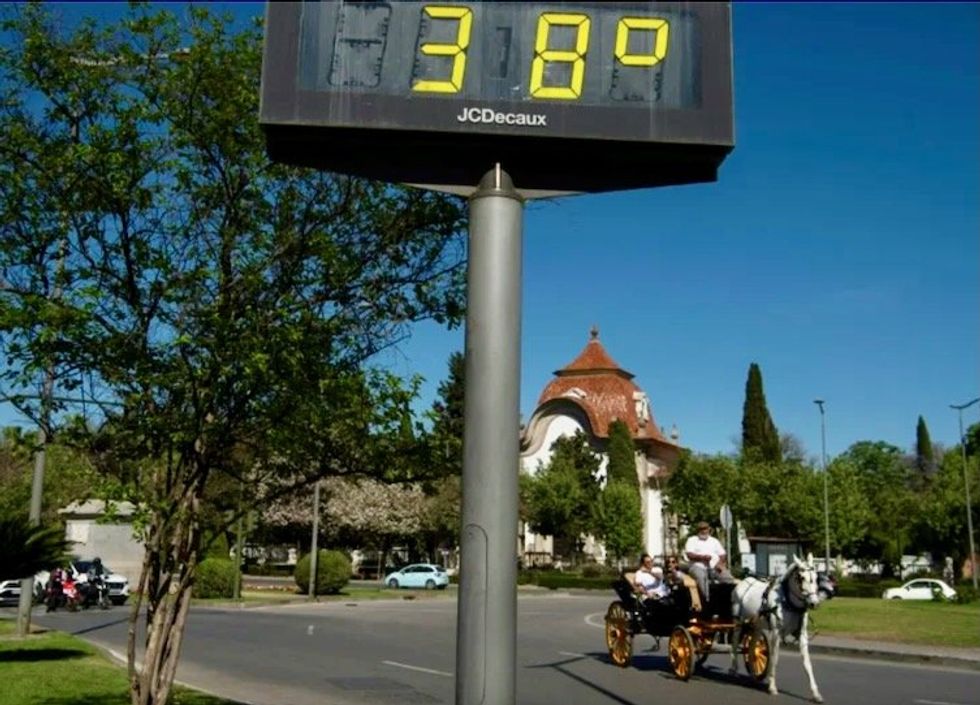Europe should brace for more deadly heatwaves driven by climate change, said a sweeping report on Monday, noting the world’s fastest-warming continent was some 2.3 degrees Celsius hotter last year than in pre-industrial times.
Crop-withering drought, record sea-surface temperatures and unprecedented glacier melt are among the consequences laid out in a report by the World Meteorological Organization and the European Union’s Copernicus Climate Change Service.
The continent, which has been warming twice as fast as the global average, experienced heatwaves that shattered longstanding records in 2019, with Paris recording its highest temperature of 42.6 degrees Celsius (108.7 degrees Fahrenheit) in July.
Experts warn that if global emissions continue unchecked, these extreme weather events will become more frequent and intense, leading to detrimental effects on ecosystems, agriculture, and public health.
The report also highlights the urgent need for policymakers to take bold action to mitigate the impacts of climate change, such as transitioning to renewable energy sources, implementing more stringent emissions regulations, and investing in climate resilience measures.
According to the report, Europe is already experiencing the effects of climate change, and these impacts are only expected to worsen in the coming years. From more frequent and severe heatwaves to increased risks of wildfires, floods, and food shortages, the continent is facing a future that is increasingly uncertain and dangerous.
As temperatures continue to rise, European countries will need to adapt to the new normal and implement proactive measures to protect vulnerable populations and ecosystems. This will require significant investments in infrastructure, emergency preparedness, and public health initiatives to ensure the region can withstand the growing threats posed by climate change.
—
Based on the information provided, the escalating heatwaves driven by climate change in Europe will have far-reaching effects on individuals, communities, and economies. As temperatures soar, people will face increased risks of heat-related illnesses and even death, particularly among the elderly, children, and those with pre-existing health conditions. Agriculture will also be severely impacted, leading to food shortages, decreased crop yields, and economic instability.
Furthermore, the environmental consequences of these heatwaves will be felt on a global scale, as the rapid warming of Europe will contribute to rising sea levels, more frequent extreme weather events, and irreversible damage to delicate ecosystems. The loss of glaciers and melting ice caps will exacerbate the already critical issue of sea-level rise, putting coastal communities at risk of flooding and displacement.
Overall, the intensifying heatwaves in Europe underscore the urgent need for coordinated global action to combat climate change and reduce greenhouse gas emissions. Failure to address this crisis will result in devastating consequences for both people and the planet, making it imperative for governments, businesses, and individuals to prioritize sustainability and resilience in all aspects of life.
—
In conclusion, Europe’s vulnerability to deadly heatwaves driven by climate change poses a significant threat to the continent’s future. As temperatures continue to rise, urgent action is needed to mitigate the impacts of global warming and protect the environment, public health, and economies. By implementing sustainable practices, investing in renewable energy sources, and adopting climate resilience measures, Europe can work towards a more sustainable and secure future for all.





